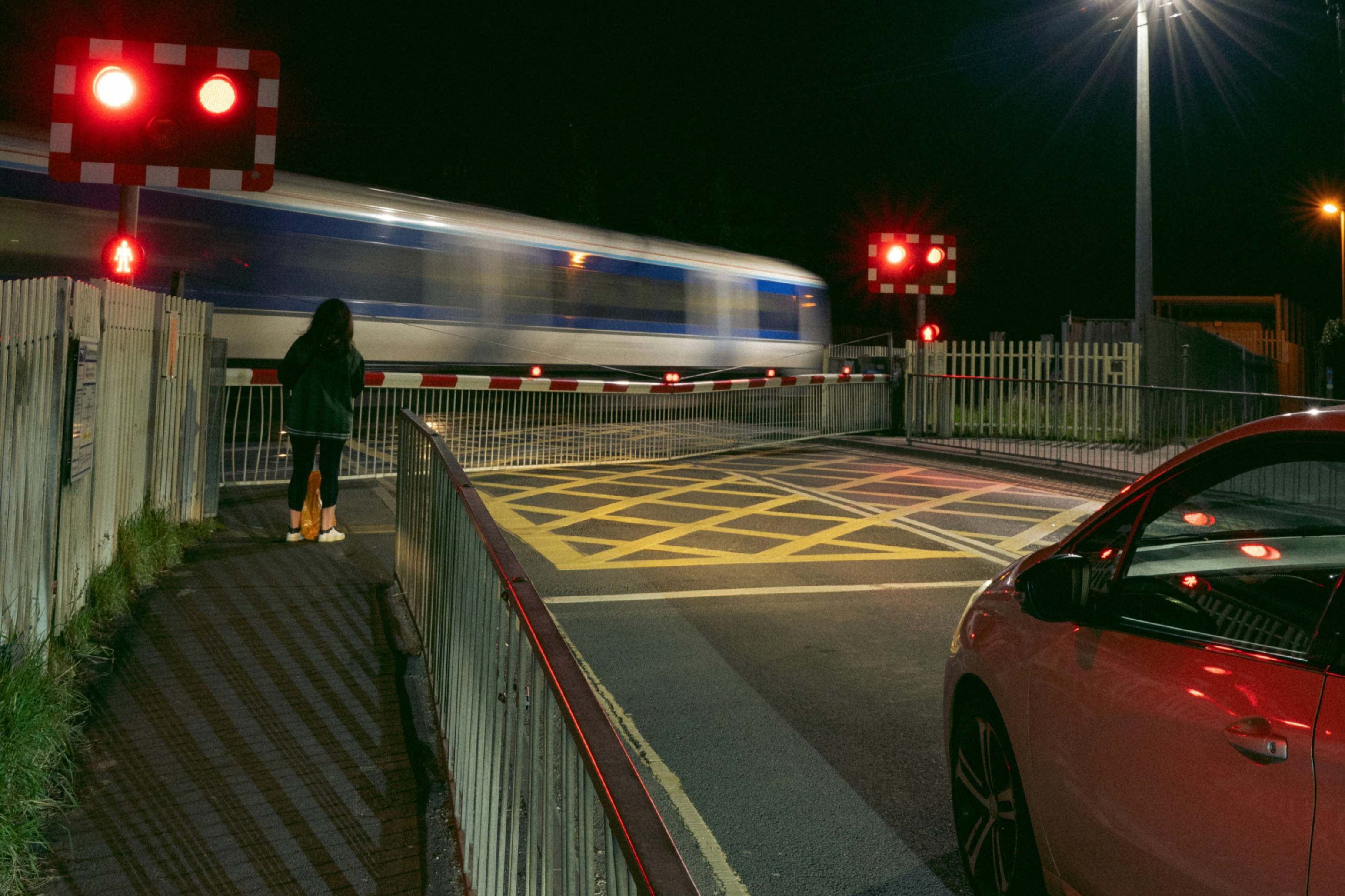
We can view the train passing by as either a challenge or an opportunity to stop without becoming discouraged. (Unsplash/Krzysztof Hepner)
A train can suddenly interrupt our lives, either literally or metaphorically, without us even noticing. We can choose to get angry, feel despair or find enjoyment in it — it all depends on the attitude we take in the face of the unexpected. That's exactly what happened to me one day as I was rushing to meet some friends: A train crossed my path and brought my race to a temporary halt.
As I waited for the train to pass, my senses heightened: I heard the whistle, watched the movement, felt the ground tremble with its speed, gripped the steering wheel tightly, and smelled the old iron as the rails clashed with the wheels. Stopping was inevitable; trying to beat that massive machine would have been a deadly risk. I noticed the driver in front of me, who, in desperation, left the line to take another route.
On my way back, the train crossed my path again. I thought to myself, "For a train to cross my path once is a coincidence, but twice in the same day is almost impossible!"
I wondered what this experience was trying to teach me about anxiety and haste in my life. Although I have to admit, I enjoyed it this time. I watched the train's movement with peace, counted the cars and admired the graffiti — the words, the colors, and the speed. It all seemed fascinating to me.
In life, we have many choices and the freedom to decide. Sometimes, we may succumb to despair instead of choosing to enjoy the moment.
We live in a fast-paced world, with tight schedules, packed agendas, and constant worries about the future that generate anxiety. It's as if someone or something is pushing us to rush, to compete with each other and with the world, when what truly matters is simply arriving, not who gets there first. We see these races play out at airports, on roads while driving, in stores while shopping, and in our own lives.
These relentless rushes elevate levels of anxiety, depression, loneliness and impatience, preventing us from fully enjoying the present moment. Proverbs 16:32 reminds us: "The patient are better than warriors, and those who rule their temper, better than the conqueror of a city."
In our personal and religious lives, practicing patience reminds us to pause, take a deep breath, and be physically, mentally and emotionally present each day. Learning to be present with God, with those around us, and with ourselves helps us realize that we are an integral part of the universe.
In life, we have many choices and the freedom to decide. Sometimes, we may succumb to despair instead of choosing to enjoy the moment. We can view the train passing by as either a challenge or an opportunity to stop without becoming discouraged.
As a religious person and a woman living in community, I am not immune to the anxiety that can arise from activism that dehumanizes us. Practicing "presence in who we are and what we do" integrates our deepest being and allows us to embrace whatever life presents, even if it means being temporarily halted by a train.
Advertisement
When we consciously stop, transformations can occur. This was evident for Jesus during his journey from Judea to Galilee. In Samaria, despite his weariness, he had a profoundly transformative encounter with the Samaritan woman. Both were fully present to each other through conversation, listening and mutual presence, even as they sat in the bright afternoon sun (John 4:6).
Most of us live with haste, anxiety, insecurities and worries that destabilize our present and future. By stopping, taking a deep breath and being present in the moment, we gain the awareness that our being is more important than our doing.
Let us embrace a peaceful and deliberate pace, being fully present with God, with others, and with ourselves. In this way, we can allow the universe to speak to us through simple events, such as a train crossing our path.
Editor's note: This column was originally published in Spanish.





